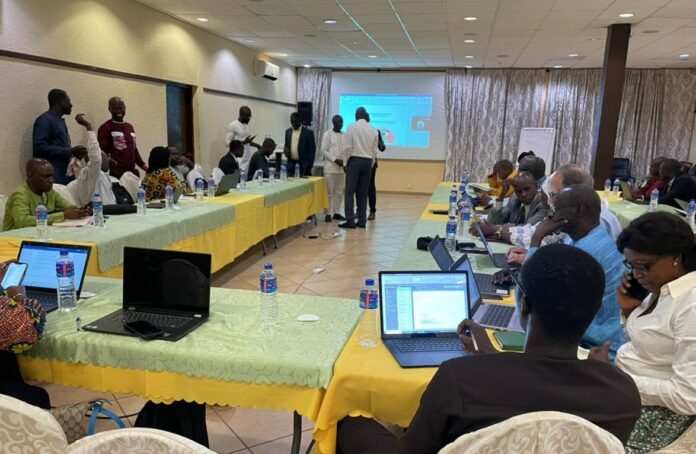By: Dawda Baldeh
The Gambia Public Procurement Authority (GPPA) and its partners are currently in the midst of a three-day final validation process for the inaugural Homemade Procurement Act of 2023. This event is taking place at a local hotel in Senegambia.
Addressing the audience during the official opening of the validation session, Foday M. Jaiteh, Director General of the Gambia Public Procurement Authority (GPPA), emphasized the significance of having a domestically crafted Procurement Act.
The Public Procurement Regulation is intended to facilitate the implementation and integration of the Gambia Public Procurement Act of 2022. This forum is poised to complete the legal framework for the country’s procurement system, enhancing transparency in the process.
Highlighting the critical nature of the Act, Mr. Jaiteh drew the attention of the business community, the public, and procurement authorities to several key sections of the Act that aim to empower and safeguard the rights of all stakeholders within the procurement system.
“Section 24 of the Act addresses issues related to corruption, fraud, and conflicts of interest. Section 23 pertains to the conduct of staff within procuring organizations, including the procurement authority. Section 25 focuses on the conduct of economic operators. Additionally, sections 70, 79, and 80 discuss appeal procedures, the confidential review board, and challenge proceedings, respectively,” he explained.
DG Jaiteh emphasized the need for these sections to be comprehended by the public and the business community.
Habib Jeng, Chairman of the GPPA Board of Governors, reiterated that the GPPA and its parent ministry aim to provide a responsive legal framework for conducting public procurement in the country. This framework ensures the procurement of the right goods/products at the right time and the right cost. He noted that the review and validation of the Act come at an opportune moment, as they will enhance productivity.
Mr. Jeng, who previously served as Director General of GPPA in 2003, urged attendees to critically examine the Act to adequately address individual and collective needs.
Juldeh Ceesay, Deputy Permanent Secretary at the Ministry of Finance and Economic Affairs, expressed gratitude to the GPPA for introducing regulations that incorporate good practices and tools into the public sector procurement system. She emphasized that a robust public procurement system is central to the effective functioning of a public financial management system.
Public procurement involves the use of public funds by the government, through its ministries and departments, on behalf of its citizens. This is done for the acquisition of goods, services, and works of the highest quality, at the best possible price, utilizing sources such as contractors, suppliers, service providers, or consultants.




